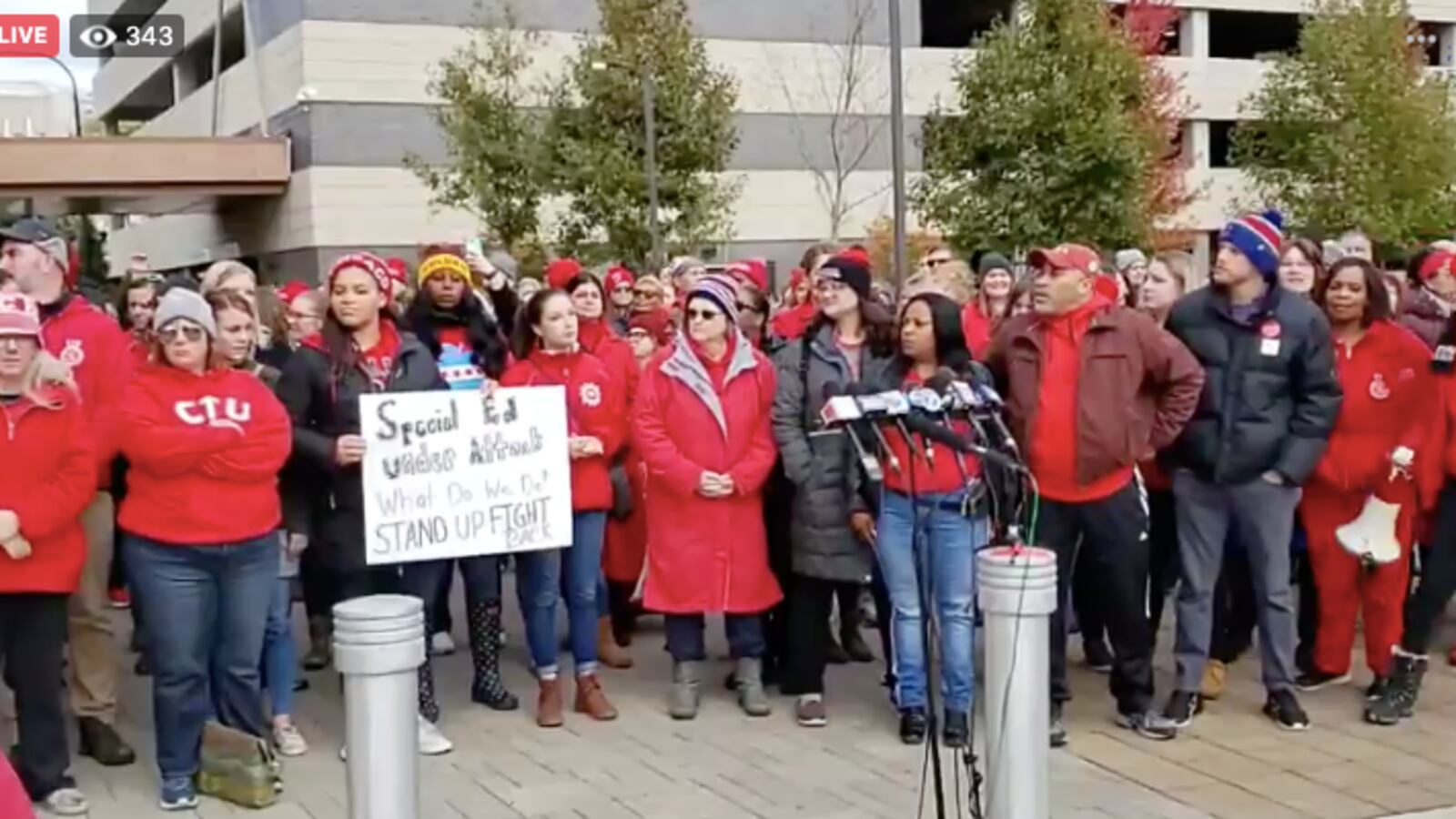Despite state and local efforts to fix special education in Chicago Public Schools, a litany of problems continue to dog the troubled program, speakers told a committee of the Illinois General Assembly on Friday.
During the nearly five-hour hearing, members of the House Elementary and Secondary Education Committee expressed dismay over the lack of progress in fixing the system, which has been overseen by a state monitor for two years. The district still struggles to translate students’ individualized education programs (IEPs) into languages other than English and has not yet filled vacancies for over 500 special education teachers and classroom assistants.
“Our records indicate that last year the district laid off 64 special education teachers despite having vacancies,” committee Chairwoman Michelle Mussman said. “Was no effort made at all to relocate them somewhere else?”
District representatives said they were unable to provide an answer during the hearing, but noted that the district hired 142 special education workers and 136 case managers last year.
They also said they hope to fix translation lapses and plan to hold more extensive staff and parent training on IEPs and other programs for children with special needs.
“I’m concerned as well — we all are,” said Stephanie Jones, the district’s chief of diverse learners. “The testimony today helped us understand we have some work to do.”
The district previously has acknowledged that reforms have been slow to take hold, and the state’s monitor, Laura Boedeker, noted the challenge of turning around the system.
Parents and advocates said the district has proved uncooperative and falls short on transparency, doesn’t allow them enough time to respond to proposed policies, and muddies the process for families to apply for a special education program required by the state. In some cases, educators charged, parents were pressured to amend IEPs to receive fewer services in order to prevent their students from being transferred to a different school.
Parent Christine Palmieri said that even after she spent years advocating for her autistic son, the district still denies him the support he needs. She said the district did not initially identify him as eligible for educational benefits to help his learning, because it dialed back goals in his IEP plan.
“It has caused significant, long-term regression, and he never should have suffered through those delays [in services],” Palmieri said. “None of that is being taken into consideration.”
Palmieri said her son’s current IEP team includes members who originally declared him ineligible for compensatory education, and she has faced retaliation from district employees as a result of her public fight for better services.
“Why is it OK for CPS not to follow the law, and why do I feel like I have to be apologetic for my demands that my son deserves better?” she said. “I am exhausted.”
In another case, a grandmother who requested an IEP meeting for a sixth-grade, non-reading student was told it wouldn’t be necessary, because staffing shortages at the school meant the child hadn’t received any IEP-directed services, said Amanda Klemas, an attorney with the Equip for Equality nonprofit.
Klemas said 550 parents and service providers have called its free help line in the past year with issues in receiving special education services.
“We have received enough calls from families to know problems in the corrective action process are occurring at concerning rates,” she told the committee.
Advocates lambasted the district last year for its slow pace in remedying problems.
After an explosive WBEZ report in 2017 on the Chicago district’s limiting of special education services, the state seized control of the program and appointed a monitor in hopes of correcting the illegal, systemic changes that resulted in delayed or denied services for an estimated 12,000 students.

